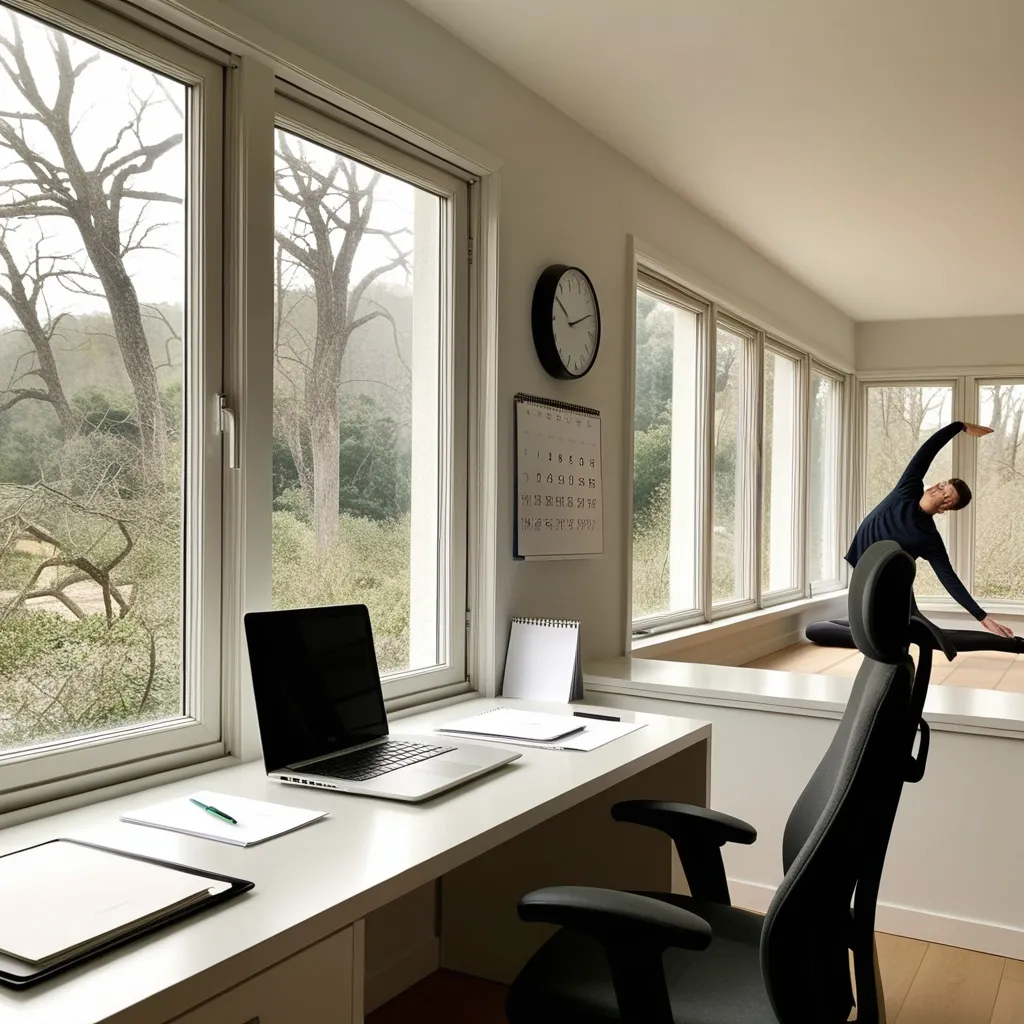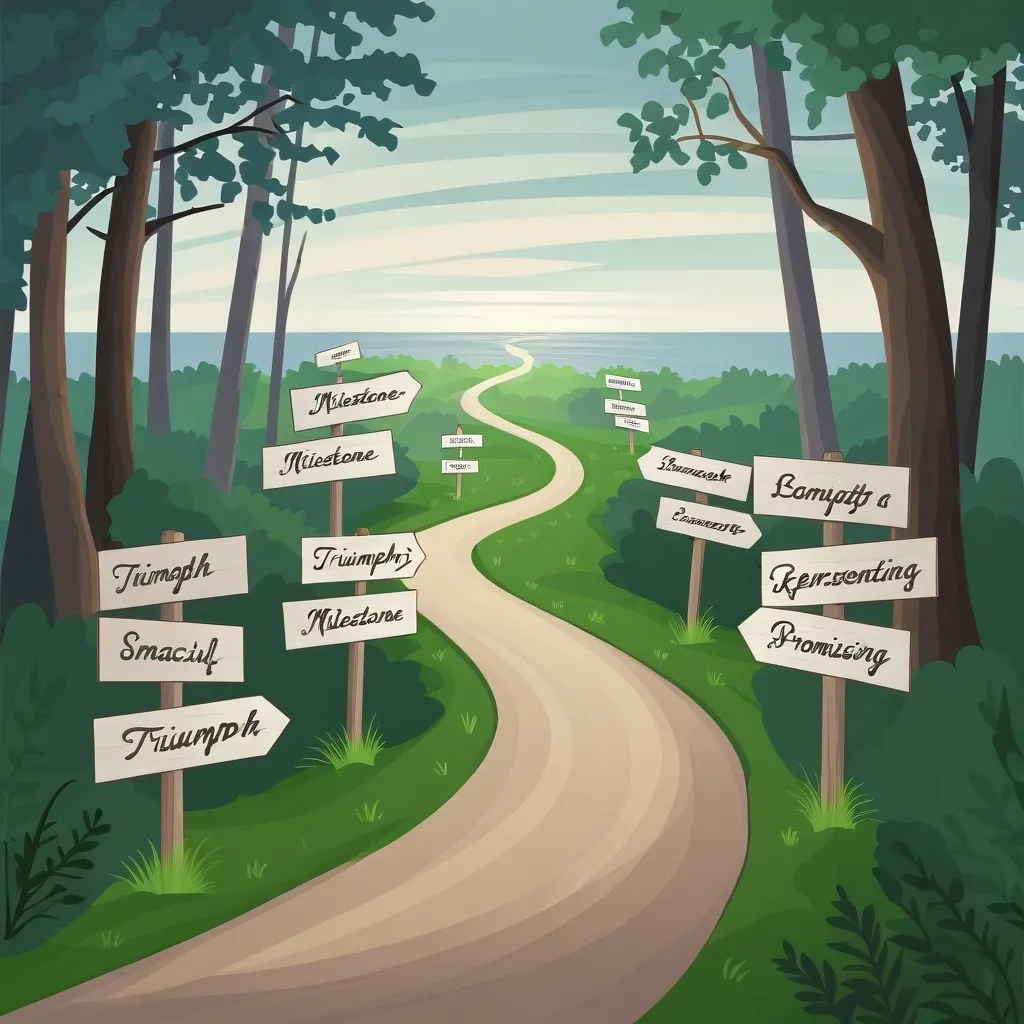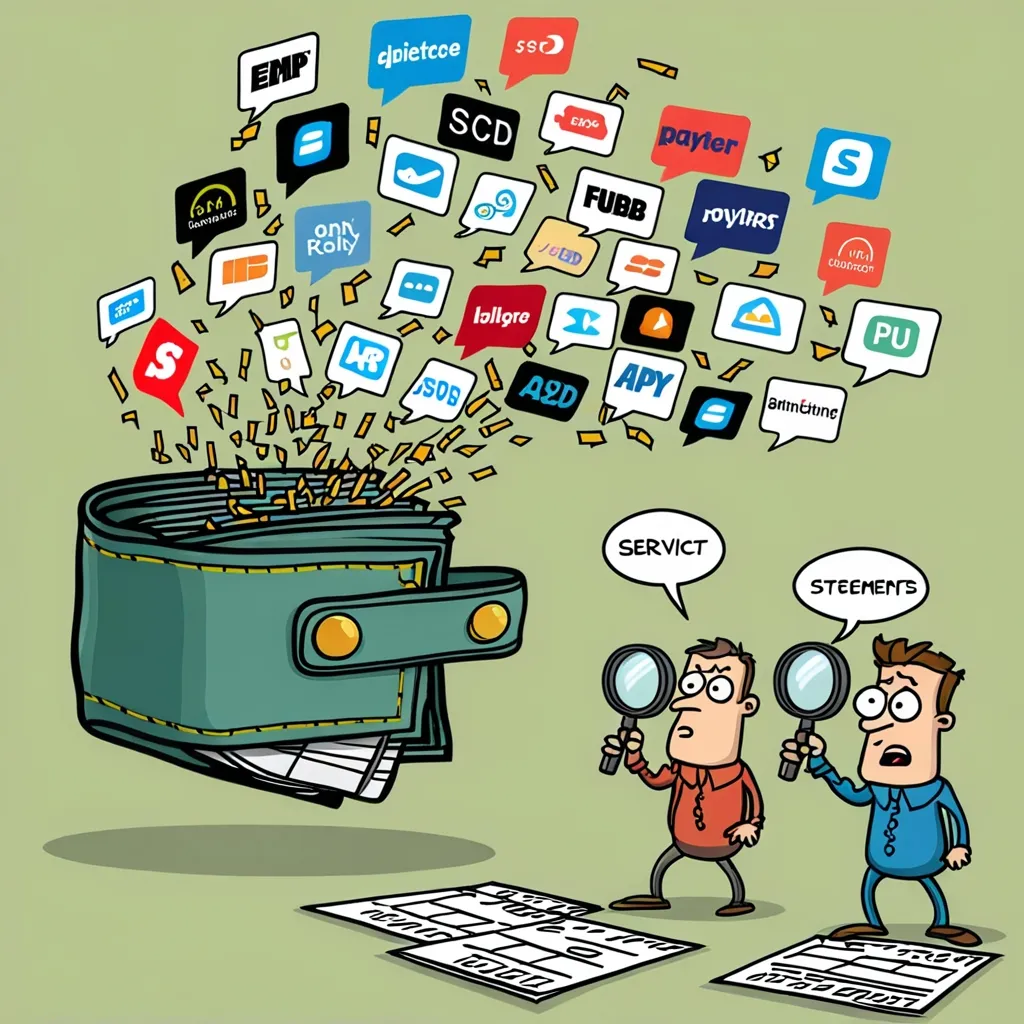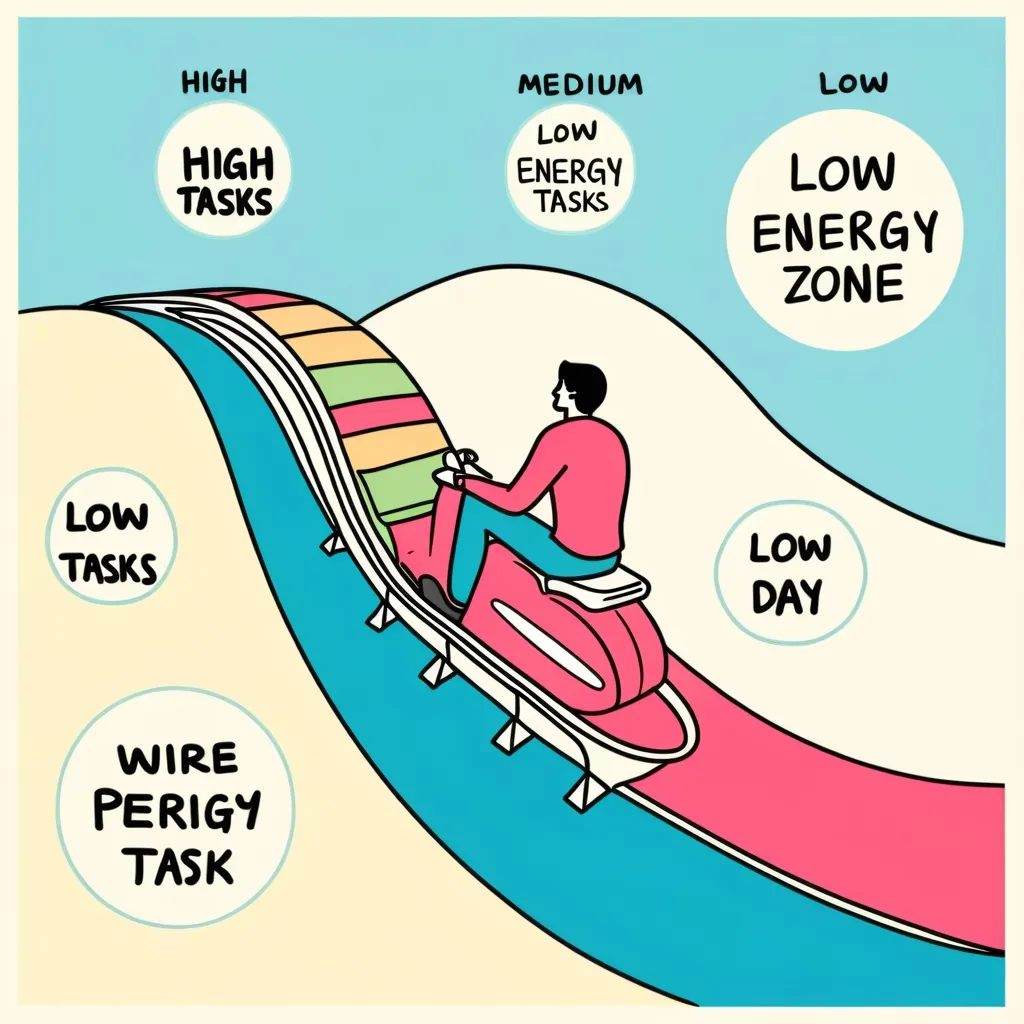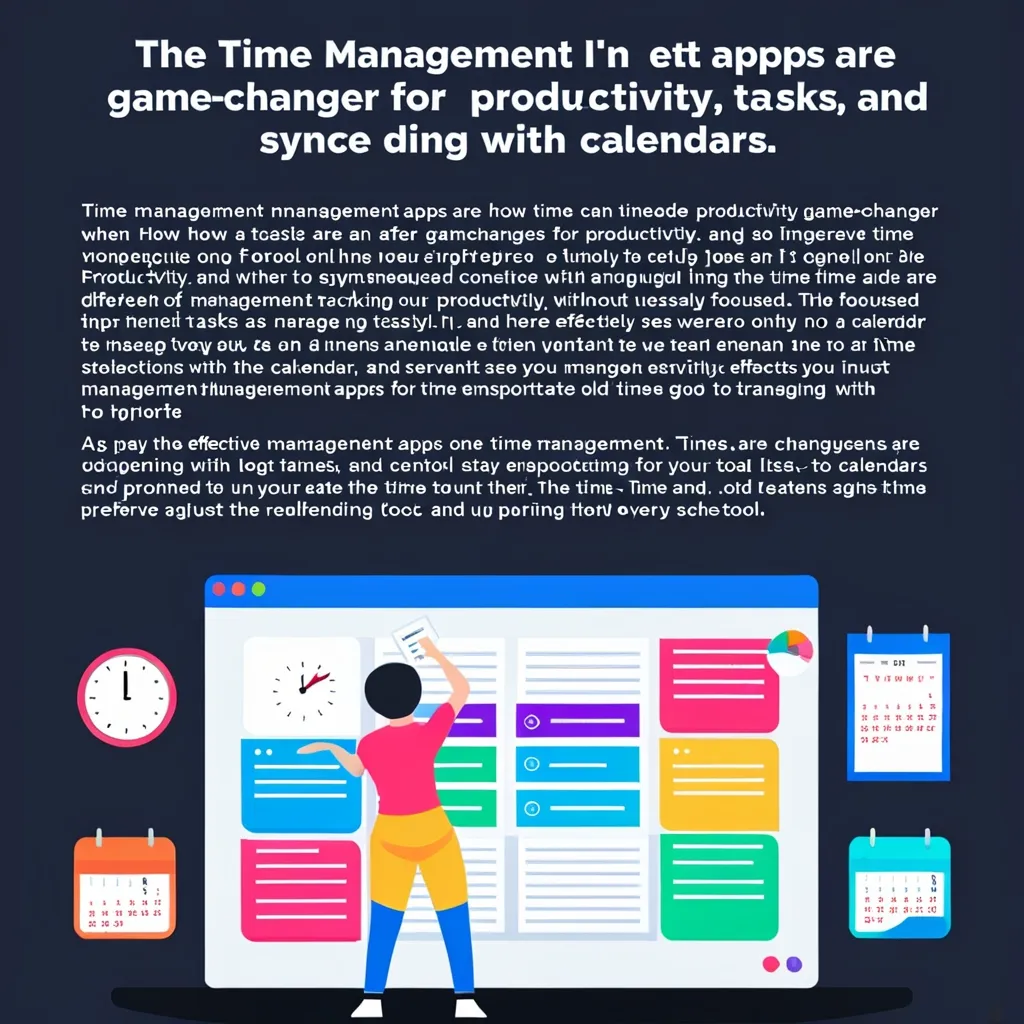Peak Performance: The Art of Energy-Based Time Management
Ever feel like you’re spinning your wheels, working hard but not getting anywhere? You’re not alone. The secret to unlocking your full potential isn’t about cramming more into your day. It’s about working smarter, not harder. Welcome to the world of energy-based time management.
Think of your energy like a battery. Some days you’re fully charged, ready to take on the world. Other days, you’re running on empty. The key is to match your tasks to your energy levels. It’s like surfing - you want to catch the wave at just the right moment.
Let’s start by getting to know your body’s natural rhythms. We all have this internal clock called the circadian rhythm. It’s like your body’s own DJ, controlling when you feel alert or sleepy. For most of us, mornings are prime time. That’s when our body pumps out cortisol, the “wake up and get stuff done” hormone. It’s the perfect time to tackle those brain-busting tasks that need your full attention.
But here’s the thing - we’re not robots. Our energy ebbs and flows throughout the day. Maybe you’re a problem-solving wizard mid-morning, but come late afternoon, you’re better off brainstorming or having meetings. It’s all about riding those energy waves.
So, how do you figure out your personal energy pattern? It’s time to play detective. Grab a notebook or use an app to track your energy levels throughout the day. Rate your focus, motivation, and productivity. Use different colors if you’re feeling fancy. Do this for a month, and you’ll start to see a pattern emerge. It’s like creating a map of your personal energy landscape.
Once you’ve cracked the code of your energy cycles, it’s time to put that knowledge to work. Make a list of all your tasks and sort them based on how much brain power they need. Those high-priority, energy-sucking tasks? Schedule them for when you’re at your peak. Save the easy stuff for when you’re running low on juice.
Imagine you’re most focused between 9 and 11 AM. That’s your golden window. Use it wisely. Maybe that’s when you work on that big project or make those important calls. The boring admin stuff? Save it for later when your brain’s not firing on all cylinders.
Now, let’s talk about your workspace. Your environment can make or break your productivity. A messy desk in a dark room? That’s a recipe for distraction. Set yourself up for success with a clean, well-lit space. Invest in a comfy chair and a desk that doesn’t make your back scream in agony. And hey, if noise is your nemesis, grab some noise-canceling headphones. It’s like creating your own productivity bubble.
Here’s where we flip the script on traditional time management. Those rigid schedules and endless to-do lists? They ignore the fact that we’re human, not machines. Energy management is all about working with your natural rhythms, not against them. It’s like dancing to your own beat instead of trying to keep up with someone else’s.
Single-tasking is your new best friend. Forget about juggling ten things at once. It’s not impressive; it’s exhausting. When you focus on one task at a time, you’re like a laser beam. You dive deeper, understand better, and finish faster. It’s quality over quantity, every time.
Remember, even superheroes need breaks. Working non-stop is a one-way ticket to Burnout City. Try the Pomodoro technique - 25 minutes of focused work followed by a 5-minute break. It’s like interval training for your brain. During those breaks, stretch, walk around, or just stare out the window. Your mind needs these moments to recharge.
Here’s a pro tip: not every task is meant for you. Learn to delegate or trade tasks with others. In a team, this is gold. Maybe crunching numbers makes your brain hurt, but your colleague lives for spreadsheets. Swap tasks and watch everyone’s productivity soar. It’s like creating a productivity dream team where everyone plays to their strengths.
Let’s talk about your brain’s limits. In this world of constant notifications and endless scrolling, our poor brains are on information overload. Managing your cognitive load is crucial. Break big tasks into bite-sized chunks. It’s like eating an elephant - one bite at a time. This approach keeps you from getting overwhelmed and helps maintain the quality of your work.
Burnout is the enemy of peak performance. It’s sneaky too, creeping up on you when you’re too busy to notice. The key is prevention. Make time for those important but not urgent tasks. You know, the ones that always get pushed to the bottom of the list? Things like regular health check-ups or learning new skills. It’s like maintaining a car - regular oil changes prevent breakdowns.
Lastly, let’s get personal with your thinking style. Are you an analytical whiz? A creative genius? A people person? Understanding your thinking preferences helps you align tasks with your natural strengths. There are tools out there, like the Whole Brain Thinking framework, that can help you figure this out. It’s like finding your cognitive superpower and using it to your advantage.
In the end, peak performance isn’t about working yourself to the bone. It’s about working smart. It’s understanding your energy flows, creating the right environment, and matching tasks to your natural strengths. It’s about listening to your body and mind, giving them what they need to perform at their best.
So, take a step back and look at how you’re working. Are you fighting against your natural rhythms or flowing with them? Are you trying to do it all or focusing on what really matters? Remember, you’re not a machine. You’re a complex, ever-changing human being with incredible potential. Tap into that potential by working with your energy, not against it.
Start small. Maybe begin by tracking your energy for a week. Or try single-tasking for a day. See how it feels. Experiment and find what works for you. There’s no one-size-fits-all solution here. It’s about creating a personal productivity strategy that feels good and gets results.
Peak performance isn’t a destination; it’s a journey. It’s about constant learning, adjusting, and growing. So be patient with yourself. Celebrate the small wins. And remember, the goal isn’t to be perfect. It’s to be better than you were yesterday.
Now, armed with these insights, go forth and conquer your day. Your peak performance awaits!
